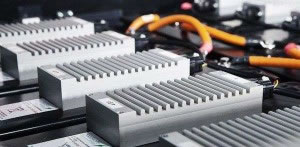Mercedes Is Proposing A Novel Solution To Meet Energy Storage Demand
 By Michael McDonald for OilPrice.com: Ever since Tesla announced its PowerWall battery project earlier this year, interest in stationary storage and battery technology in general has been explosive. Now, Mercedes Benz has put together an interesting project built around recycled batteries that might help drive even more interest in grid scale utility storage and help to blend the consumer and commercial markets for batteries.
By Michael McDonald for OilPrice.com: Ever since Tesla announced its PowerWall battery project earlier this year, interest in stationary storage and battery technology in general has been explosive. Now, Mercedes Benz has put together an interesting project built around recycled batteries that might help drive even more interest in grid scale utility storage and help to blend the consumer and commercial markets for batteries.
Under Mercedes’ new project, a consortium of companies is going to create the world’s largest grid storage facility using used batteries in Lunen, Germany. The project will have the capacity to store 13 megawatts of power (enough to meet the demand of 130,000 homes) based on reusing automotive batteries. The basic premise is that when the battery from an electric vehicle or a plug-in hybrid vehicle is no longer reliable enough to start a car, it still has up to 80% of its original storage capacity remaining. As a result, a large series of these batteries can be connected to store energy from renewable sources like solar and wind power. Cont'd...
Comments (0)
This post does not have any comments. Be the first to leave a comment below.
Featured Product

